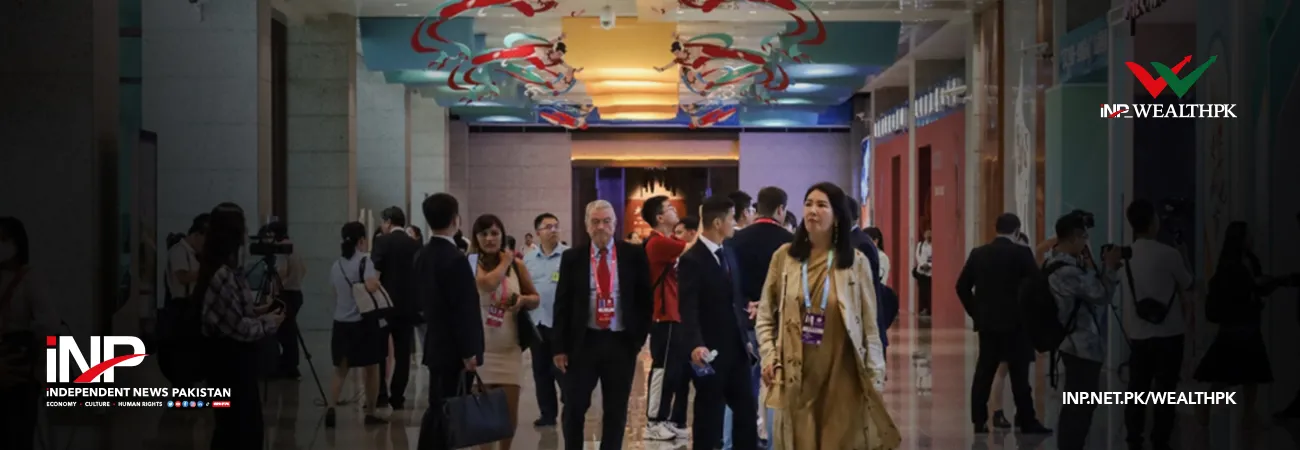INP-WealthPk
Qudsia Bano
The sixth Silk Road (Dunhuang) International Cultural Expo was recently held in Dunhuang, a major hub on the ancient Silk Road in northwest China’s Gansu Province, aimed at promoting the Silk Road spirit of cooperation, mutual learning, and the Global Civilization Initiative. At the two-day expo beginning September 6, the participants pledged to encourage international exchanges in various fields, emphasizing cultural heritage preservation and research. The expo featured exhibitions, forums, performances, and cultural tours, with a focus on Dunhuang’s rich cultural legacy, including rare artifacts from the Mogao Grottoes.
It provided a platform for dialogue and exchange among experts, scholars, artists, and officials from various countries and regions. As China demonstrates its commitment to promoting its cultural heritage and fostering international cooperation through events like the Silk Road (Dunhuang) International Cultural Expo, Pakistan can draw valuable lessons and insights for its own cultural promotion and heritage preservation endeavors. Talking to WealthPK, Azam Jamil, former tourism minister and former chairman of Pakistan Tourism Development Corporation (PTDC), underscored the importance of embracing Pakistan’s rich cultural heritage and natural beauty at the local and international level.
He said Pakistan could also organize international cultural expos showcasing its rich cultural heritage, historical sites, and artistic achievements. Such events can attract global attention, promote tourism, and facilitate cultural exchange. He said Pakistan could utilize its cultural heritage as a tool for diplomacy by forging partnerships with other nations like China to jointly protect and promote shared heritage. Collaboration on archaeological projects, cultural relic restoration, and museum construction can strengthen international ties, he said.
A significant concern raised by Jamil was the underutilization of potential world heritage sites like Taxila. Regrettably, he said, these sites didn’t receive the recognition they deserved on the global stage. He attributed it to a lack of focus and wanted these sites to be considered as an integral part of Pakistan’s heritage, deserving of preservation and promotion. Jamil also highlighted the need for awareness and a shift in the tourism mindset.
“Domestic tourists should be encouraged to explore their own country, fostering a sense of pride in their remarkable heritage. This shift in perspective, from international destinations to local treasures, can help develop a robust domestic tourism culture,” he said. “Infrastructure development plays a crucial role in this endeavor. Improved transportation, accommodation, and facilities can make domestic travel more accessible and attractive to the average Pakistani. The government and private sector must collaborate to ensure that these vital aspects are addressed.
“One pressing issue is a lack of well-equipped public facilities and tourist centers in many areas. To rectify this, investments in infrastructure are essential to provide convenient and enjoyable experiences to travelers,” Jamil said. Additionally, Jamil emphasized the importance of establishing a professional service network. Well-trained personnel and tour operators can elevate the quality of domestic tourism experiences, ensuring visitors have a memorable and enjoyable time exploring their own country.
Credit: INP-WealthPk













